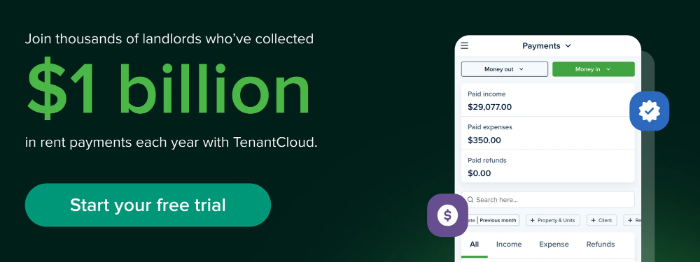Apartment hunting is an exciting process, but sometimes it's hard to tell the difference between real and fake rental listings. When you're in hopes of finding a new place is often the time you can fall victim to a rental scam. Rental scammers typically target renters who are desperately in search of an affordable home, without much luck.
How to Recognize a Rental Scam
Think you’re savvy enough to avoid rental scams? Keep an eye out for these common red flags when applying for a rental:
1. The Rental Price Is Suspiciously Low
The rental price of a property depends on several factors, including the size, location, and condition of the unit. Amenities like updated appliances or furnished rooms also play a role. Found a rental listing offering a well-decorated apartment in a good area for under $300/month? Could be a potential scam. Be cautious about any abnormal application or upfront fees - it might be a clever way for a scammer to get some extra bucks.
If knowing rental prices isn’t your superpower, don’t worry - most listing websites work hard to flag fraudulent activity. Just stay alert with the details, and it will get easier to spot listings that aren't legit.
2. They Ask for a Payment Up Front
If a landlord asks for a deposit or a monthly rent payment before you’ve even toured the unit, walk away. Even if the rental looks perfect online, you never know if the photos are real - or if the unit even exists.
Some scammers list and try to rent the same property multiple times to potential tenants or post fake properties altogether. Once they’ve collected a few pre-payments, they disappear, and there’s no way to get your money back - especially if you sent it via cash app or money order.
3. The Security Deposit Is Unusually High
Security deposits are there for landlords to ensure they can recover the costs of any damages to the rental after you've moved out. While this is a typical part of the rental process, a large security deposit can be a red flag.
A typical security deposit is usually the same amount as the first month's rent. It might also be double the monthly rent amount. If your monthly rent is $1,000, for instance, the maximum security deposit a landlord can charge is $2,000. No matter how appealing the offer is, paying more than two months in advance could signal an overpayment scam.
4. No Lease Agreement (and Landlord Is Fine With It)
If you hear, "You don't need a lease agreement. I completely trust you." That sounds more like a statement from a fake landlord or property manager. Run away as fast as you can from this scammer. Real landlords will never disregard a lease agreement, because they understand it protects their rights and responsibilities as well. Scammers posing as landlords are usually more interested in getting the full rent amount as soon as possible.
Keep in mind that scam landlords may also skip other steps in the process, like running a background or credit check, as tenant screenings are unnecessary for their scam tactics. A legitimate landlord will have no problem running a screening before renting their property, and they will also provide and review the lease terms.
If you notice any suspicious behavior from a prospective landlord, Google their business and property to find out if they are a real landlord who owns real properties.
5. The Landlord Is Overly Eager to Rent
If a landlord seems too eager to rent out their property to you, they may be trying to rope you into a deal before you can second-guess the situation. Behaviors like calling or messaging you several times, leaving multiple voice messages, and demanding you agree to sign a contract that day are all red flags.
While most landlords like to move quickly to keep their vacancies filled, you want to rent from someone who respects your time and doesn't harass you before you even commit.
6. They Ask for a Wire Transfer (Wire Fraud)
While wire transfers are a safe way to send money in certain instances, they are often a major indicator of fraud. This is because most transfers cannot be reversed. Another important note is that wire transfers are typically for larger deposits, not something that landlords typically need or ask for.
In a wire fraud scheme, the scammer poses as a legitimate landlord or a property owner and asks you to wire rent or deposit money electronically. Once sent, the scammer receives the wired funds and disappears without a trace.
Tip: Never wire money until you’ve seen the property in person and verified the landlord. Even then, you may want to choose a different form of payment for your security deposit and application fee, if possible.
7. You Can't Verify the Property is Available
Like mentioned above, fraud tactics often involve fake property listings to reel you in. There is also another scenario where the fraudster may conduct a showing — either in-person or virtual — of a property, usually one that's vacant. If you can’t track the listing back to an owner, office, government record, or property management website proceed with caution. They may be using someone else's vacancy to scam you out of your money.
Roommate Scams or Tenant Fraudsters?
Keep in mind that some scammers use fake applications to collect personal info - like your Social Security number, bank account details, or driver’s license, which can be used for identity theft or sold on the dark web. Always verify the legitimacy of rental applications and only provide sensitive information to reputable landlords or property management companies.
How to Avoid Rental Scams in 2025
- Always be one step ahead
Use Google to verify the rental listing and landlord. You can also try using Google Lens to reverse-image-search listing photos. - Only apply through trusted platforms
Submit your rental application through secure, verified rental listing websites such as Rentler, Zillow, and Apartments.com. If the site looks like “perfect-rentals-for-$100.com” - skip it. - Stay protected with secure payment methods
Avoid less secure payment methods such as cash, bank transfers, Venmo, or Zelle, and always verify the property and opportunity first. - Call to verify each listing
We know - phone calls, eek. But if you want to make sure the rental you're interested in is legit, call the number on the listing. Even a brief chat can help you get a better idea of the situation and spot if something feels off. With online scams becoming more rampant and AI getting better at impersonating people, it's always worth double-checking who you're talking to.
Takeaway
Keep in mind that apartment rental scams, housing scams, and any other types of rental fraud aren’t new, but the attempts are becoming more sophisticated. Staying cautious can save you a lot of trouble - and money in your rental search.
Take this quiz to see if you’re good at spotting rental scams. Ready? Click the image below to get started.
Do I Need Renters Insurance: What It Is & How Does It Work?
Landlord Insurance: Secure Your Rental Property
Home Security For Renters: 5 Main Measures Every Landlord Should Have







